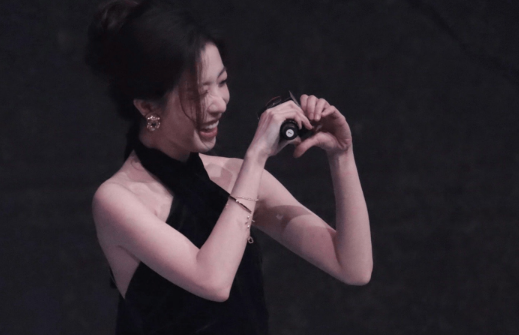過去式的句子(過去式的句子,英語)
 xj
2023-04-05
xj
2023-04-05
過去式的用法和句型:
一、用法:表示在過去某個(gè)時(shí)間里所發(fā)生的動(dòng)作或存在的狀態(tài),通常在句子里找到表示過去時(shí)間的詞或詞組。
如:yesterday,yesterday morning,yesterday afternoon,yesterday evening,the day before yesterday,last night,last week,last month, last year,a moment ago,just now, two days ago,a week ago,in 1990等。
二、句型:I went to bed ateleven last night. 昨晚我11:00睡覺。
三、句子結(jié)構(gòu)
1、在表示某個(gè)時(shí)間里存在的狀態(tài)的句子,系動(dòng)詞用過式was,were構(gòu)成。
2、在表示過去某個(gè)時(shí)間里發(fā)生的動(dòng)作,用動(dòng)詞的過去式構(gòu)成。如:I visited my uncle yesterday. 昨天我拜訪了我的叔叔。
[img]求20個(gè)一般過去時(shí)的英語句子,最好短一點(diǎn)。求20個(gè)一般過去時(shí)的英語句子,最好短一點(diǎn)。
1】He used to be a soldier. ? 他曾經(jīng)是一位軍人。2】He was only 19 years old?when he became the world?champion. 當(dāng)他成為世界冠軍的時(shí)候,他才19歲。3】Jack was ?here just now . 杰克剛才就在這里。 4】What song did she sing just now? ? 剛才她唱的是什么歌?5】I was in my favorite bar yesterday afternoon。昨天下午我是在我最喜歡的酒吧。6】Tom went to visit his high school teacher o days ago . 兩天以前,湯姆去拜訪了他的高中老師。 ? ? ?7】Tom?celebrated?his?24th?birthday?o?days?ago.?湯姆兩天前,慶祝了他的24歲生日。 ? ? 8】He?asked?you?for the book yesterday. ? ?他昨天就向你要那本書了。 ? ? ?9】Did he drink tea or coffee a moment ago? 剛才他喝的是茶還是咖啡。10】?Ford found a new job the day before yesterday. ? 前天福特找到了一份新工作。11】They were my clas *** ates once. 他們曾經(jīng)是我的同學(xué)。12】Ward?got up early this morning . ? 沃德今早起床起得很早。 ? ?13] What was ?the weather like last night ? ? 昨晚的天氣怎么樣? ? ? ?14】??The?rain?was?heavy?last night . 昨晚雨很大。 ? 15】Amy went to the movies with her friend Susan last night. ? 昨晚艾米和她的朋友蘇珊一起去看電影了。16】He was?informed of his prize news?an hour ago . 他是一小時(shí)以前得知他獲獎(jiǎng)的消息。17】He was fond of writing before . 他以前非常喜歡寫作。18】We watched a very wonderful football match yesterday. ? ?昨天我們觀看了一場非常精彩的足球比賽。
求20個(gè)一般將來時(shí)的英語句子,最好短一點(diǎn)。
I will go to school tomorrow ---- I will not go to school tomorrow,
He will buy a book -------He won't buy a book
She is going to watch TV-----She is not going to watch TV(這種也是一般將來時(shí))
It will be rainy ------ It won't be rainy
You are going to read a book ---- You aren't going to read a book
The keys will be taken away--------The keys won't be taken away
I shall have lunch later------I shall not have lunch
I shall play football-------I shan't play football (shall not縮寫shan't 當(dāng)主語是我時(shí)可以will或shall
It is going to rain-----It isn't going to rain
I'll be a teacher-----I won't be a teacher
He will get married. 他就快結(jié)婚了
She will have a daughter.她就會(huì)有個(gè)女兒了
The cat will have a master.貓要有主人了
The pig will have a house. 豬就要有窩了
Telephone me this evening. I‘ll be at home. 今晚給我打電話,我會(huì)在家。
I'll(shall/will)do a better job next time. 下次我要干得更好
The car won’t start.車開不了啦。
Oil and water will not mix. 油和水沒法混在一起。
I'm leaving tomorrow. 明天我就要走了.
He is ing back this Sunday.這個(gè)星期他就回來了.
I will go to the zoo. 我要去動(dòng)物園。
She will write a letter. 她會(huì)寫一封信。
Will he open the window? 他會(huì)打開窗戶嗎?
He won't go swimming. 他不會(huì)游泳。
I'm going to tidy my room when I get back school.當(dāng)我從學(xué)校回來時(shí)我去整理我的房間。
She is going to have a party.
She will go shopping after lunch.
I am going to by car.He is going to drink some lemonade.they are going to help mother.they are going to go to the cinema.
i'm going to help you he won't do that will you give me a hand please the question will be answered by me you will understand the question.
I will go there. I will not go there. Will you go there? It will be taken there. It will go there.
反正將來時(shí)就是 主語+will(我可以用shall)+動(dòng)詞原型 否定在will后面+not
另外 主語+be going to+動(dòng)詞原形也是 否定在be后面否定
上個(gè)星期我去游泳的英語句子一般過去時(shí)
I went swimming last week.
go swimming 是固定的搭配 去游泳
一般過去時(shí)的話,go的過去式就是went
所以,就是I went swimming last week.
一般過去時(shí)的語句變化
肯定句;主語加過去式,否定句主:語加didn't加動(dòng)詞原型,一般疑問句:did加主語加動(dòng)詞原形,肯定回答yes,主語加did,否定回答no,主語加didn't.特殊疑問句:特殊疑問詞加did加主語加動(dòng)詞原型
一般過去時(shí)態(tài)句子,多一點(diǎn)
1HeworkedinNewYorklastyear.
2HewatchedTVjustnow.
3Wereyouinredyesterday?(Didyouwearredclothesyesterday?)
4HewenttoNanjinglastmonth.
5Wheredidyouplayfootballyesterday?Ontheplayground.
英語句子用一般過去時(shí)填空在我百度問,百度回答
They _were_____(be)at home yesterday
如何判斷哪些英語句子是一般現(xiàn)在時(shí),一般過去時(shí),現(xiàn)在
英語的這些時(shí)態(tài)一般有三種判斷方法: 1.標(biāo)志性的表時(shí)間的短語或單詞 2.時(shí)態(tài)自己的意義 3.動(dòng)詞的形式
一般現(xiàn)在時(shí):會(huì)出現(xiàn)的頻率副詞或時(shí)間狀語有always,usually,often,sometimes,never,everyday等等,另外一般現(xiàn)在時(shí)表示習(xí)慣性經(jīng)常性的動(dòng)作,或者客觀事實(shí)與哲理,也可以從這點(diǎn)出發(fā)。如果看到一個(gè)句子中的動(dòng)詞是單三形式,就基本可以確定就是一般現(xiàn)在時(shí)了。
一般過去時(shí):表時(shí)間的有just now,yesterday,last week,one day等,一般過去時(shí)表過去發(fā)生的事或做的動(dòng)作,所以當(dāng)出現(xiàn)這種句式“when I/she/he …”“…ago”時(shí),也可以判斷,另外,當(dāng)動(dòng)詞出現(xiàn)過去式的形式時(shí),也可以確定
現(xiàn)在進(jìn)行時(shí):這個(gè)表時(shí)間的常用的是now,出現(xiàn)now大部分情況下現(xiàn)在進(jìn)行時(shí)。在這種時(shí)態(tài)下,通常會(huì)用的句式為:“is doing sth.”也就是說,要出現(xiàn)be動(dòng)詞,而且動(dòng)詞要變現(xiàn)在分詞形式。
以上就是這三種時(shí)態(tài)的標(biāo)志性判斷方式。
用unless造一個(gè)一般將來時(shí)和一個(gè)一般過去時(shí)的句子
unless是從屬連詞,引導(dǎo)條件狀語從句,含有否定意義,相當(dāng)于if條件狀語從句的否定形式.所以unless = if not.注意:unless引導(dǎo)的條件狀語從句和if條件狀語從句,與其它時(shí)間狀語從句一樣,用一般現(xiàn)在時(shí)代替將來時(shí)
一般將來時(shí)
She will keep on singing unless she is told to s. 她會(huì)一直唱下去,除非有人叫她停止
一般過去時(shí)
The wife told her hu *** and that unless he left the children to die in the forest, the whole family would die.妻子告訴丈夫,如果他不把孩子們?nèi)拥缴掷镒屗麄冏陨詼纾胰硕紩?huì)死
unless一般過去時(shí)的造句
No one could use the puter unless they had a password.
給幾個(gè) 一般過去時(shí) 的英文句子!
你好,Unit 7 The Birthday Party
Topic1 Can you dance?
一、詞匯:
1. Happy Birthday!生日快樂!
2. take photos拍照
3. work out作出,解決
4. how about/what about如何,怎樣
5. fly kites放風(fēng)箏
6. row a boat劃船
7. perform ballet ]表演芭蕾舞
8. dance the disco跳迪斯科
9. make model planes做飛機(jī)模型
10. draw pictures畫畫
11. show *** . sth.給某人看某物
12. o years ago兩年前
13. be in hospital(生病)住院
二、句型:
1. What are you going to perform at Kangkang’s birthday party?你打算在康康的生日晚會(huì)上表演什么?
“be going to+動(dòng)詞原形”的句型常用來表示打算、準(zhǔn)備做某事或即將發(fā)生或肯定要發(fā)生某事,be是助動(dòng)詞,有人稱和數(shù)的變化,如:
He is going to have a swim this afternoon.
2. What about /How about +名詞、代詞或動(dòng)名詞,意為“……怎么樣?”常用來表示對……的看法,或表示建議、詢問的方式,如:
How/What about sitting here to look at the moon?坐在這兒賞月怎么樣?
3. I only can sing English songs.我只會(huì)唱英文歌曲。(情態(tài)動(dòng)詞can的用法)
They couldn’t sing any English songs o years ago.兩年前他們不會(huì)唱英文歌曲。
一段時(shí)間+ago:表示在……時(shí)間以前,如:three months ago三個(gè)月以前
4.What will you buy for Kangkang as a birthday present?你要給康康買什么禮物?
“will+動(dòng)詞原形”表將來。
5.I can play the guitar.
三、定冠詞the 的用法
1) 定冠詞特指某(些)人或某(些)事物, 以區(qū)別于同類中其他的人或事物。
The bag in the desk is mine. 桌子里的書包是我的。
Is this the book you are looking for? 這是你要找的書嗎?
Do you know the man in back? 你知道穿黑色衣服的人是誰嗎?
It is not the car we are looking for. 這不是我們要找的車。
The man has found his child. 那個(gè)人找到了他的孩子。
2) 定冠詞用來指上文中已提到過的人或事物。
I bought a book from Xinhua book-shop. The book costs 15 yuan.
我從新華書店買了一本書. 這本書值十五元。
I saw a film yesterday.The film was ended at eight o'clock.
我昨天看了一場電影。電影八點(diǎn)鐘結(jié)束的。
Lucy bought a radio yesterday, but she found something was wrong with the radio.
露西昨天買了一臺(tái)收音機(jī),但是她發(fā)現(xiàn)收音機(jī)有問題。
3) 定冠詞用于表示世界上獨(dú)一無二的事物或用于自然界現(xiàn)象或方位名詞之前。
the sun the moon the earth the sky the world the sea
The sun is bigger than the moon. 太陽比月亮大。
I can see a bird in the sky. 我能看到天空中有一只小鳥。
I like to have a walk with the bright moon light in the evening. 我愿晚上在明亮的月光下散步。
4) 定冠詞與單數(shù)名詞連用,表示這一類人或物。
The dog is not too danger. 狗不太危險(xiǎn)。
The cat is an animal. 貓是一種動(dòng)物。
The umbrella in the shop is very cheap in this season. 這個(gè)季節(jié)商店里的雨傘很便宜。
5) 定冠詞與某些形容詞連用,使形容詞名詞化, 表示某一類人。
the poor, the rich, the wounded, the sick, the deaf.
The wounded were brought to the hospital. 受傷者被送到了醫(yī)院。
He always helps the poor. 他經(jīng)常幫助窮人。
The deaf can go to this special school. 耳聾者可以進(jìn)這所特殊學(xué)校上學(xué)。
6) 用在序數(shù)詞, 形容詞最高級和表示方位的名詞前。
This is the biggest city in China I have ever visited. 這是我在中國參觀的最大的城市。
I saw a plane ing from the east. 我看見一架飛機(jī)從東方飛來。
He is the last one to help me. 他不會(huì)來幫助我的。
7) 定冠詞用在演奏樂器的名稱和文藝活動(dòng),運(yùn)動(dòng)場所的名稱前。
The little girl likes to play the violin. 小女孩喜歡拉小提琴。
They are going to the cinema tonight. 他們今晚要去影院看電影。
The theater was on fire last week. 劇院昨天著火了。
8) 定冠詞用在報(bào)刊,雜志的名稱的名詞之前。
I am reading the China Daily now. 我現(xiàn)在正讀中國日報(bào)。
Have you got the Evening Paper yet? 你拿到晚報(bào)了嗎?
The Times is a foreign newspaper. 泰晤士報(bào)是一家外國報(bào)紙。
The Peking Review is on the desk. 北京周報(bào)在桌子上放著。
9) 定冠詞用在江河,海洋,山脈,群島的名稱之前。
We live near the Yellow River. 我們住在黃河邊上。
The Changjiang River is the biggest one in China. 長江是中國最大的河。
The Himalayas is located in Tibet. 喜馬拉雅山位于西藏。
10) 定冠詞用在姓名復(fù)數(shù)之前,表示一家人。
The Greens is very kind to us. 格林一家人待我們很好。
The Whites like the classic music. 懷特一家喜歡古典音樂。
不用冠詞的場合。
1) 專有名詞,抽象名詞和物質(zhì)名詞之前一般不用冠詞。
China is a largest country in the world. 中國是世界上最大的國家。
I think water is a kind of food, too. 我認(rèn)為水也是一種食物。
Cotton feels soft. 棉花摸起來柔軟。
2) 表示日常餐食名詞之前不用冠詞,但如果指具體的飲食時(shí)用定冠詞 the。
It's time for breakfast. 該吃早飯了。
What do you have for lunch? 你午飯吃點(diǎn)什么?
The dinner I had at that restaurant was expensive. 我在那家飯店吃的飯很貴。
3) 在季節(jié),月份,星期,節(jié)日。球類運(yùn)動(dòng),棋類游戲的名詞之前不用冠詞。
Summer is hot and winter is cold here. 這兒夏天熱冬天冷。
New Year's Day is ing. 新年就要到啦。
Today is the first day of May. 今天是五月的第一天。
We are going to play basketball this afternoon. 今天下午我們要去打籃球。
We don't like bridge very much. 我們不太喜歡橋牌。
4)語言的名稱前不用冠詞。
Can you speak English? 你會(huì)講英語嗎?
It's difficult to learn Chinese well. 要學(xué)好中文很難。
Tom knows English but he doesn't know French. 湯姆懂英語但不懂法語。
5) 某些固定詞組不用冠詞。
by air, on foot, at night, after school, at home, go to class, in fact, from morning till night.
I'm going to Chicago by air next week. 下周我要乘飛機(jī)去芝加哥。
I go to school on foot . 我步行去學(xué)校上學(xué)。
In fact, I don't know him at all. 實(shí)際上,我一點(diǎn)也不認(rèn)識(shí)他。
He is at home today. 他今天在家。
Topic2 When is your birthday?
一、詞匯:
1.first of all首先
2.have a birthday party舉行生日晚會(huì)(聚會(huì))
3.have a special dinner吃一頓特殊的晚餐
4.fet to do sth.忘記去做某事
5.That’s a good idea!真是好主意!
6.make a cake做蛋糕
7.be born出生
8.the shape of ……的形狀
9.I’m afraid…我恐怕,我擔(dān)心……
二、 句型:
1. When is your birthday, Kangkang?康康,你的生日是什么時(shí)候?
May the eighteenth.五月十八日。
①“when”可以就年、月、日和鐘點(diǎn)進(jìn)行提問,而“what time”只能就鐘點(diǎn)進(jìn)行提問。
②英語中日期有幾種表示方法:
a.把月份寫在日期前面,這通常是美國寫法。如:March 21st,2001 讀作March the enty-first, o thousand and one(2001年3月21日)
b.先寫日子,再寫月份和年,這通常是英國寫法。如::21st March,2001讀作the enty-first of March, o thousand and one
2. ---I beg it’s going to be fun.我敢斷定肯定有趣。---You bet.當(dāng)然了。
3. What day is it today? It’s Friday.
詢問星期用What day…? 回答用It……如:
What day is it today? It’s Wednesday. 或Today is Wednesday.
4. What’s the date today? It’s May 21st,2004.
詢問日期用What’s the date…?如:What’s the date the day afternoon?
5. Tomorrow is your mom’s birthday.
名詞所有格表示名詞之間的所屬關(guān)系。一般有兩種表示方式,一種是在名詞后加 's 構(gòu)成,一種是用 of 所有格。
(1) 表示有生命的人或物的名詞,在詞尾加 's 來表示從屬關(guān)系,如:
Mary’s school bag my sister’s cat
(2) 以 s 結(jié)尾的名詞,表示所有格只在后面加’, 如:
the boys’ game the teachers’ chairs
(3) 由 and 連接兩個(gè)或兩個(gè)以上的單數(shù)名詞,表示共有關(guān)系,這時(shí)只在最后一個(gè)名詞后加 's ,如:
Tom and Mike’s sister
Jack and John’s room
Tom’s and Jack’s fathers
(4) 無生命東西的名詞,一般都與 of 構(gòu)成短語,表示所屬關(guān)系, 如:
a map of China a picture of my school
6. How shall we celebrate it?我們要怎樣慶祝呢?
Shall we have a special dinner?我們吃一頓特別的晚餐怎么樣?
“Shall I…/Shall we…”用于示表示建議或征求意見,也可用“疑問詞+shall +I / we…”如:Shall we go swimming this afternoon?今天下午我們?nèi)ビ斡竞脝幔?/p>
What time shall we start?我們該什么時(shí)候出發(fā)?
7. Don’t fet to buy a birthday cake.別忘了買生日蛋糕。
fet的用法:
(1) 接名詞或代詞,如:
I fet his name.我忘了他的名字。
Don’t fet me.別忘了我。
(2)接不定式,意為“忘記要做某事”,如:
Please don’t fet to close the door when you leave.你離開時(shí)請別忘了關(guān)門。
(3)接動(dòng)詞ing形式,意為“忘記做過某事”,如:
I fet meeting you in Beijing.我忘了在北京見到過你。
8. Kangkang is going to be thirteen on May the eighteenth.
介詞on ,in和at放在時(shí)間前的用法:
(1) on放在某一或某些確定或不確定的時(shí)間前,如某天(某些天),某天的上午,下午或晚上,如:
on August 18th,1980 在1980年8月18日
on Sunday 在星期天 on Saturday evening在星期六的晚上
on a cold day 在一個(gè)寒冷的日子 on Children’s Day在兒童節(jié)
(2) in表示在一段時(shí)間,多放在年、月、季節(jié)等時(shí)間前,如:
in summer在夏天 in July在七月 in the morning在早上
(3) at用在某一時(shí)刻、年紀(jì)、夜晚、中午等時(shí)間前,如:
at 8 o’clock在八點(diǎn) at night在夜晚
at noon在中午 at the age of ten 在十歲時(shí)
9. When were you born?你什么時(shí)候出生?
I was born in June ,1970.我生于1970年6月。
10. Sorry, I’m afraid you can’t.
I’m afraid往往相當(dāng)于I’m sorry, but…可用來引出帶有歉意的句子,表求一種擔(dān)憂,語氣較緩和,如:I’m afraid I can’t e.(=I’m sorry, but I can’t e.)
四、序數(shù)詞
表示數(shù)目順序的詞用序數(shù)詞。
1) 序數(shù)詞1━19 除第一,第二,第三,第五,第八,第九, 第十二變化不規(guī)則外, 其余均由在 基數(shù)詞后加上 -th。
2) 十位整數(shù)的序數(shù)詞的構(gòu)成方法是, 是將十位整數(shù)基數(shù)詞的詞尾 -y 變成 i 再加 -eth。
3) 幾十幾的序數(shù)詞,只是把個(gè)位數(shù)變成序數(shù)詞, 十位數(shù)不變。 序數(shù)詞的用法: 序數(shù)詞主 要用作定語,表語。前面要加定冠詞 the。
Topic3 We had a wonderful party.
一、 詞匯:
1. lots of=a lot of 許多
2. tell a lie撒謊
3. in fact事實(shí)上,實(shí)際上
4. fall down跌倒
5. be funny有趣
6. have a good time玩得高興,過得愉快
7. blow out 吹滅
8. not…at all一點(diǎn)也不,根本不
9. not …till/until直到……才
10. hurt oneself受傷
11. as well也
12. magic tricks魔術(shù)
13. rock songs搖滾歌曲
14. cross-talk相聲
二、 句型:
1. He performed magic tricks.
一般過去時(shí)的句子構(gòu)成.
(1) My mother didn’t go to work yesterday.
(2) Did you go to the zoo last Sunday? Yes, I did. /No, I didn’t .
2.I have a lot of work to do as well.我還有許多工作要做。
as well意為“除……之外,也,又”,只能放在句末作狀語,與too的用法相同,可互換使用。as well as是連詞,用來連接兩個(gè)名詞形容詞等,如:
Lu Xun is a great writer, and a fearless fighter as well.魯迅是個(gè)偉大的作家,也是個(gè)無畏的戰(zhàn)士。
He gave the beggar food, as well as money.(=He gave the begger food , and money as well.)他除了給那個(gè)乞丐食物外,還給他錢。
3.You know I don’t like video games at all.
not…at all根本不,一點(diǎn)都不,at all多放在否定句末,加強(qiáng)否定語氣,如:
My mother can’t ride a bike at all.
Thanks very much. Not at all.
4. Did the movie go on until midnight?電影一直演到午夜嗎?
until用作介詞,跟一個(gè)表示某一時(shí)間的名詞,也可用作連詞,引導(dǎo)一個(gè)時(shí)間狀語從句。
①肯定句中,until只與持續(xù)性動(dòng)詞連用,意為“到……為止”。如:
We had to wait until he came back.我們只好等到他回來。
②until在否定句中,通常與瞬間性動(dòng)詞連用,構(gòu)成“not……until”,意為“直到……才”,如:The children didn’t leave school until five o’clock.
③引導(dǎo)時(shí)間狀語從句,用一般現(xiàn)在時(shí)代替一般將來時(shí),如:
I won’t go until he es back.我將等他回來再走。
三、動(dòng)詞的一般過去時(shí)態(tài)
I. 一般過去時(shí)的概念
一般過去時(shí)表示過去某個(gè)時(shí)間發(fā)生的動(dòng)作或存在的狀態(tài)。常和表示過去的時(shí)間狀語連用。如:last year, yesterday等; 也可表示過去經(jīng)常反復(fù)發(fā)生的動(dòng)作,常和often, always等頻率副詞連用。
例如:①I saw him in the street yesterday. 昨天我在街上看見他了。
②Li Mei always went to school on foot last year. 去年李梅總是步行上學(xué)。
II. 一般過去時(shí)的構(gòu)成
我們主要來學(xué)習(xí)謂語動(dòng)詞為實(shí)義動(dòng)詞的一般過去時(shí)的構(gòu)成。
動(dòng)詞過去式的構(gòu)成:
(1)規(guī)則動(dòng)詞過去式的構(gòu)成有四條規(guī)則:
①一般在動(dòng)詞原形末尾直接加上-ed。如:look-looked。
②以不發(fā)音的字母e結(jié)尾的動(dòng)詞,去e再加-ed。如:live-lived。
③末尾只有一個(gè)輔音字母的重讀閉音節(jié),先雙寫這個(gè)輔音字母,再加-ed。如:s-sped。
④末尾是輔音字母+y結(jié)尾的動(dòng)詞,先變y為i,然后再加-ed。如:study-studied。
(2)不規(guī)則動(dòng)詞的過去式需特殊記憶。如:am(is)-was, are-were, go-went, e-came, take-took, have (has)-had等。
III. 一般過去時(shí)的幾種句型
肯定句結(jié)構(gòu)為:主語+動(dòng)詞的過去式+其它。如:He went to the toy store yesterday. 他昨天去玩具店了。
否定句結(jié)構(gòu)為:主語+did not (didn't)+動(dòng)詞原形+其它。如:He didn't go to the toy store yesterday. 他昨天沒去玩具店。
一般疑問句的構(gòu)成:Did+主語+動(dòng)詞原形+其它?如:
1) --Did you go to Beijing last week? --Yes, we did. (No, we didn't.)
2) --Did you meet the busines *** an before? --No, I didn't. (Yes, I did.)
特殊疑問句的構(gòu)成:
疑問詞+did+主語+動(dòng)詞原形+其它?如:
1) --What did you do last night? --I did my homework.
2) --Where did you go last week? --I went to Shanghai with my parents.
一般過去時(shí)口訣:
一般過去時(shí)并不難,表示過去動(dòng)作、狀態(tài)記心間。
動(dòng)詞要用過去式,時(shí)間狀語句末站。
否定句很簡單,didn't 站在動(dòng)詞原形前,其它部分不要變。
一般疑問句也好變,did放在句子前,主語、動(dòng)詞原形、其它部分依次站。
特殊疑問句也簡單,疑問詞加一般疑問句記心間。
最后一條請注意,動(dòng)詞過去式要牢記 4713希望對你有用 。
英語中一般過去時(shí)的句子有哪些?英語中一般過去時(shí)的句子:他昨日很忙。He was busy yesterday。她以前跳舞。She danced before。艾米早就上網(wǎng)了。Amy surfed the net before。她去年上年級。She was in Gradelast year。
分享價(jià)值388元的外教試課給大家:【免費(fèi)領(lǐng)取,外教一對一精品課程】
不知道英語怎么學(xué)習(xí)?歡迎各位同學(xué)來阿卡索學(xué)習(xí)。在這兒可以自由選擇喜歡的外教/中教,固定外教一對一授課課均不到20元,超高性價(jià)比真的很有吸引力,大家可以點(diǎn)擊上述藍(lán)字體驗(yàn)看看。
不知道如何選擇英語機(jī)構(gòu),可以百度咨詢“阿卡索vivi老師”;
如果想下載免費(fèi)英語資源,可以百度搜索“阿卡索官網(wǎng)論壇”。

表示過去某一時(shí)刻或某一段時(shí)間內(nèi)所發(fā)生的動(dòng)作或情況,通常一般過去式帶有表示動(dòng)作時(shí)間狀語的詞,詞組或從句,如 yesterday, the day before last, last week, two days ago 等,上下文清楚時(shí)可以不帶時(shí)間狀語。 I worked in that factory last year. 去年我在那一家工廠工作。 I went to the Tian Long Mountain yesterday. 昨天我們?nèi)チ颂忑埳健?/p>
肯定句:主語+動(dòng)詞過去式+其他
I helped you just now.
I was there yesterday.
否定句:主語+did not+動(dòng)詞原形+賓語+賓語補(bǔ)足語
She did not say that.
或主語+be的過去式+not+其他
It was't true. She was not a student.
一般疑問句:did+主語+動(dòng)詞原形+賓語+賓語補(bǔ)足語
Did you see him in the morning?
或be的過去式+主語+其他
Was he hansome in the show last night?
特殊疑問句:what/where/how/when+did+主語+動(dòng)詞原形+其他
what/where/how/when+be的過去式+主語+其他
What was it that made you so nervous?
What did she do last summer?
How did you get the ticket?
where did you go?
When did he come back?
一般過去式句式轉(zhuǎn)換“口訣”
1.一般過去時(shí)并不難,過去動(dòng)作、狀態(tài)記心間。
2.動(dòng)詞要用過去式,時(shí)間狀語句末站。
3.否定句很簡單,didn't 站在動(dòng)原前,其它部分不要變。
4.一般疑問句也好變,did放在句子前,主語、動(dòng)原、其它部分依次站立。
5.特殊疑問句也簡單,疑問詞加一般疑問句記心間。
6.最后一條請注意,動(dòng)詞過去式要牢記!
7. 一般過去時(shí)公式:
(1)肯定句:主語+(動(dòng)詞)過去式+其他。
(2)一般疑問句:Did+主語+動(dòng)詞原形+其他?
(肯定回答):Yes, 主語+did.(否定回答):No, 主語+didn’t.
(3)否定句:主語+didn’t+動(dòng)詞原形+其他.
(4)特殊疑問句:特殊疑問詞+did+主語+動(dòng)詞原形+其他?
希望能幫到你
用動(dòng)詞過去式造60個(gè)句子 要翻譯句子:
1、She often came to help us in those days.在那些日子里她經(jīng)常來幫助我們。
2、What was your former name?你以前叫什么名字?
3、Why was he late for school last Monday?上星期一他為什么遲到?
4、What could she do twenty years ago?20年前她能做什么?
5、I didn't know you like coffee.我不知道你喜歡咖啡。
6、Did I do homework?我做作業(yè)了嗎?
7、He was dead in 1990.他于1990年去世。
8、He used to drink alcohol.他過去喝酒。
9、I had a word with Julia this morning.今天早晨,我跟朱莉婭說了幾句話。
10、He smoked many cigarettes a day until he gave up.他沒有戒煙的那陣子,抽煙抽得可兇了。
11、The boy looked at the captain,and then died.那男孩看看船長,然后就去世了。
12、Mr.. Peter always carried an umbrella.彼得太太過去老是帶著一把傘。
13、I never drank wine.我以前從不喝酒。
14、He could pack his things himself.他可以自己收拾東西。
15、Mr Li looked very old.?李先生看起來很老。
16、The accident happened near the station.?事故發(fā)生在車站附近。
17、Could he pack his things himself?他能自己打包行李嗎?
18、She was nine two years ago.兩年前她九歲。
19、He was ill yesterday.?他昨天病了。
20、They were my students long long ago.很久以前,他們是我的學(xué)生。
21、He played football last week.他上周踢足球了。
22、She watched TV last night.她昨晚看電視了。
23、When did you go to the park?你是什么時(shí)候去的公園?
24、The boy closed the door,turned off the window,and then went to bed.男孩關(guān)上門,關(guān)上窗戶,然后上床睡覺了。
25、We had a good time last week.上周我們玩得很開心。
26、They gave the concert last night.?他們昨晚舉行了音樂會(huì)。
27、She often came to help me at that time.那時(shí)她經(jīng)常來幫助我。
28、She didn’t watch TV last night.她昨晚沒有看電視。
29、They were not my students long long ago.很久以前他們不是我的學(xué)生。
30、I was late yesterday.昨天我遲到了。
31、What did you do last week?你上個(gè)星期做了什么?
32、I was born in 1990.我出生在1990年。
33、I went to the park last weekend.我是上周去的公園。
34、Were you sick yesterday?你昨天病了嗎?
35、Did Mr Li look very old?李先生看起來很老嗎?
36、When did they give the concert?他們什么時(shí)候舉行音樂會(huì)的?
37、He was not ill yesterday.他昨天沒有生病。
38、We weren't late yesterday.我們昨天沒遲到。
39、She was not nine two years ago.兩年前她還不到九歲。
40、He did not play football last week.他上周沒有踢足球。
41、Did you read books?你看了書嗎?
42、I studied English.我學(xué)習(xí)了英語。
43、What did you do last weekend?你上周末做了什么?
44、I played football.我踢了足球。
45、The police stopped me on my way home last night.昨晚在我回家的路上,警察攔住了我。
46、I got up very early this morning.今天早晨我起床很早。
47、They weren't able to come because they were so busy.他們不能來,因?yàn)樗麄兲α恕?/p>
48、He was late for school again today.今天他又遲到了。
49、He was here only a few minutes ago.僅僅幾分鐘前他還在這里。
50、I came home just now.我剛回到家。
51、Mr. Smith bought a new car yesterday.史密斯先生昨天買了一輛新車。
52、They were here only a few minutes ago.幾分鐘前他們還在這里。
53、I had to do my homework yesterday.昨天我不得不做作業(yè)。
54、I was on the Internet when you called me.當(dāng)你打電話給我時(shí),我在上網(wǎng)。
55、I was late yesterday.昨天我遲到了。
56、We weren't late yesterday.我們昨天沒有遲到。
57、I thought you were ill.我以為你病了呢。
58、I didn''t know you were in Paris.我不知道你在巴黎。
59、I used to take a walk in the morning.我過去是在早晨散步。
60、Eddle bought a bicycle three days ago.Eddle在三天以前買了一輛自行車。
一般過去時(shí)的句子都有哪些?一般過去時(shí)的結(jié)構(gòu):
1、肯定句“主語+動(dòng)詞過去式+其他”或者“主語+was/were+其他,
2、否定句“主語+didn’t+動(dòng)詞原形+其他”或“主語+wasn’t/weren’t+其他
3、一般疑問句“Did+主語+動(dòng)詞原形+其他?
4、特殊疑問句:特殊疑問詞+一般疑問句(順序)?
擴(kuò)展資料
1、表示在過去某個(gè)時(shí)間所發(fā)生的動(dòng)作或所處的狀態(tài)。常與yesterday, last week, in 1989, just now, a moment ago, the other day等連用。如:
He was here just now. 他剛才還在這里。
What did you do yesterday? 你昨天做了什么事?
2、在過去一段時(shí)間內(nèi)的經(jīng)常性或習(xí)慣性動(dòng)作。如:
We often played together when we were children. 我們小時(shí)候常在一起玩。
注:表示過去經(jīng)常發(fā)生的動(dòng)作還可用used to 和would。如:
He used to smoke a lot, but he doesn't now. 他過去經(jīng)常抽煙,但現(xiàn)在不抽了。
Whenever we were in trouble, he would help us. 每當(dāng)我們遇到困難,他都會(huì)幫助我們。
3、表示主語過去的特征或性格。如:
At that time she was very good at English. 那時(shí)她英語學(xué)得很好。
4、用在狀語從句中表示過去將來。如:
He said he would wait until they came back.
5、一般過去時(shí)有時(shí)可以表示現(xiàn)在,多與 want, hope, wonder, think, intend 等動(dòng)詞連用,使語氣更委婉。如:
I wondered if you could help me. 不知你能不能幫我一下。
以上就是網(wǎng)站小編空城舊憶據(jù)網(wǎng)絡(luò)最新關(guān)于“過去式的句子(過去式的句子,英語)”報(bào)道資料整理發(fā)布相關(guān)事件細(xì)節(jié)!轉(zhuǎn)載請注明來
來探秘,本文標(biāo)題:過去式的句子(過去式的句子,英語)
本文地址:
/qiqubaike/9197.html
標(biāo)簽: 過去式的句子(過去式的句子 英語)
- 上一篇:
- 下一篇: 東坡畫扇(東坡畫扇文言文翻譯及注釋)
- 熱門文章
-
-
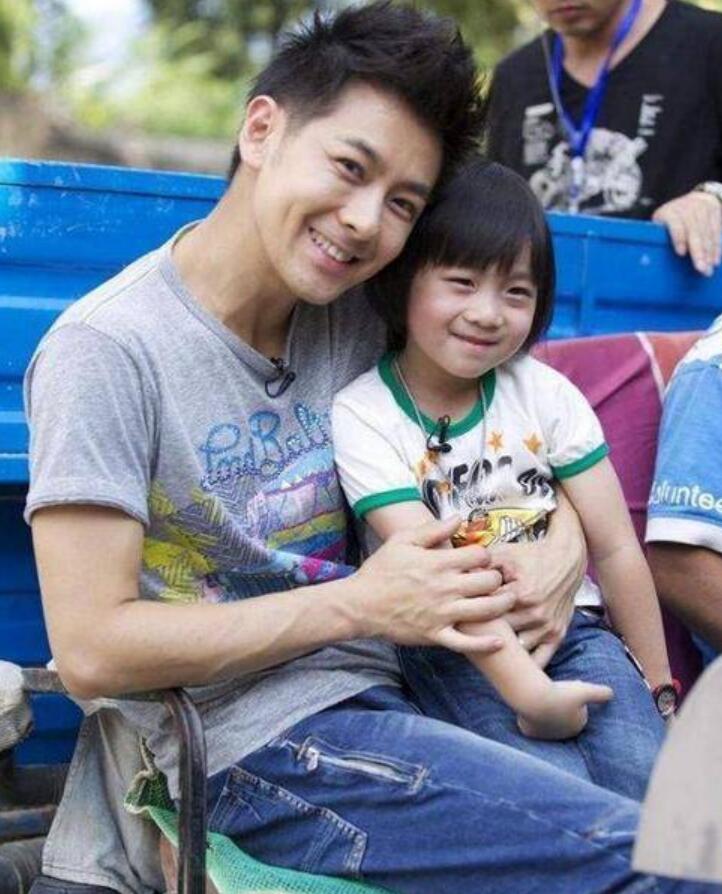
林志穎兒子kimi死亡了(真相讓人無語)
-

法國啄木鳥十大女星(法國啄木鳥女星的名字和照片)
-

霍金預(yù)言2023年喪尸爆發(fā)(地球會(huì)毀滅人類會(huì)滅亡(謠言))
-

孟買酒店真實(shí)事件,幕后黑手叫德干圣戰(zhàn)(屠殺持續(xù)了3天)
-

吞噬星空人物實(shí)力排行榜(五大強(qiáng)者排名(羅峰最強(qiáng)))
-
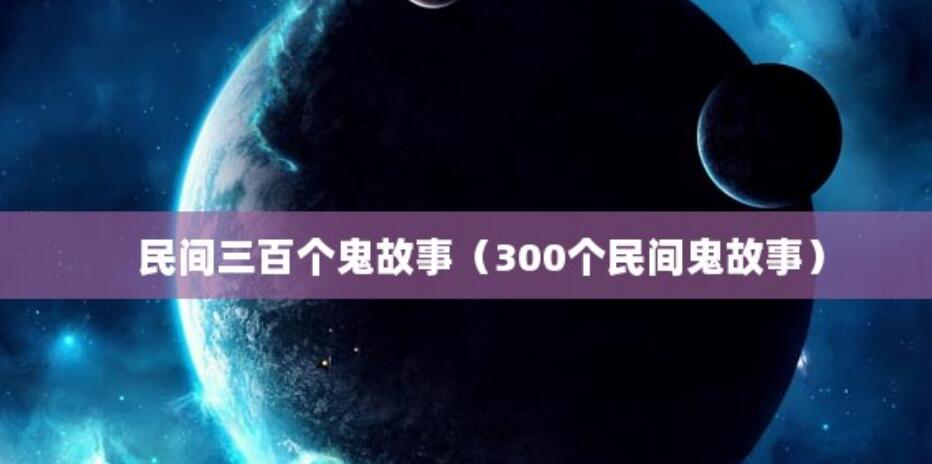
民間三百個(gè)鬼故事(300個(gè)民間鬼故事)
-
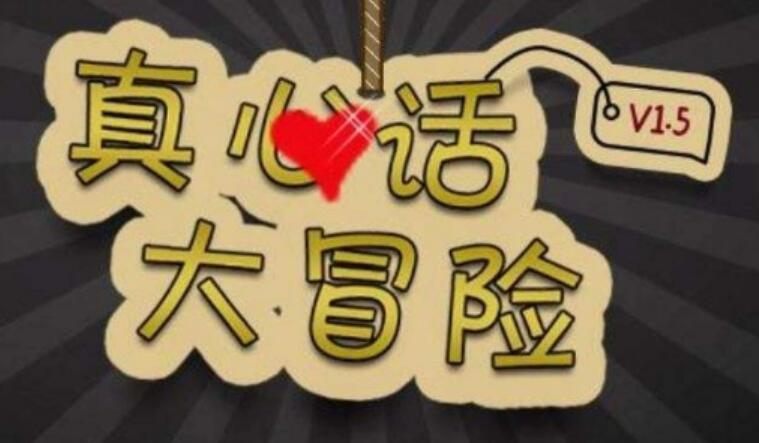
真心話大冒險(xiǎn)問題500個(gè)(刺激勁爆(好玩不過分))
-

鐘南山去世(鐘南山死亡)
-
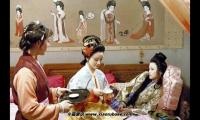
紅樓夢十大詭異細(xì)節(jié)(紅樓夢的十大恐怖之處)
-
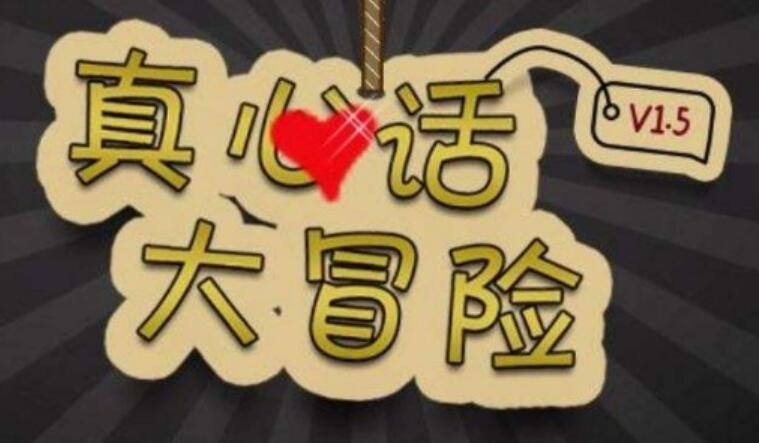
大冒險(xiǎn)懲罰大全,好玩刺激又不過分(精選40個(gè))
-
- 隨機(jī)tag
-
中國最稀有鱉(最稀有的鱉) 掉書袋什么意思(掉書袋指的是哪個(gè)生肖) 海南第一高樓海口塔428.30m 世界上現(xiàn)最大最完整(世界上最最最大) 黑頭挖出來后洞就空了嗎 心領(lǐng)(心領(lǐng)神會(huì)的近義詞) 中國氣候最溫和地方(中國氣候最溫和地方排 珍妃井(珍妃井里有珍妃尸骨嗎) 06年昆侖山真龍吃人事件 張梓琳老公聶偉資料介紹兩人經(jīng)歷3年戀情成 中國最花浙江(杭州最著名的花) 分子篩效應(yīng):分子物質(zhì)進(jìn)入凝膠微孔中向下移 無聲效應(yīng):無聲勝有聲的效應(yīng)現(xiàn)象(過度無聲 家族名稱(家族名稱大全) 京東客服電話號碼是多少(根據(jù)需求撥打) 520在古代什么日子(520在古代什么日 雍正皇帝給兄弟的命名(均為滿語音譯) 沈括的作品(沈括的作品那些錄入教材) 車禍死人現(xiàn)場圖片膽小別進(jìn)(恐怖車禍現(xiàn)場死 菖蒲和石菖蒲的區(qū)別 萬歷皇帝是明君還是昏君 什么是混合物 鬼谷子的最后一個(gè)預(yù)言(諸葛亮2030年預(yù) 中國最奇聞怪事(中國奇聞怪事視頻大全集)



